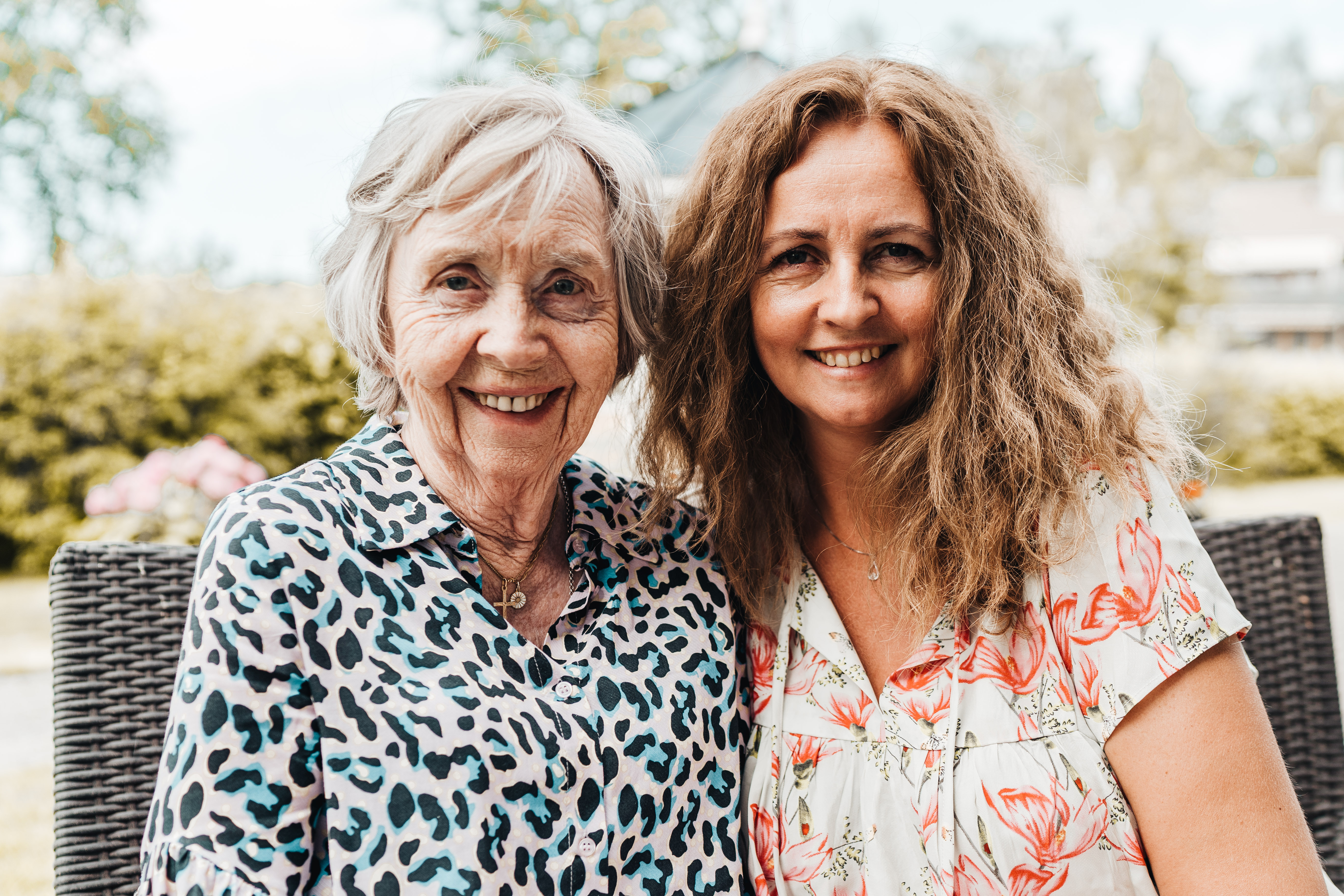At a young age, I became familiar with caring for family members. I was the youngest of 5 kids born 8 years after my nearest sister.
A losing game
Like many of us, we have lost grandparents and felt the loss when artists we loved died from old age. My losing game started at 26 when my father died. Being the youngest child, it was me who took care of my mother. Ten years later, I lost two brothers within just a few months of each other. One very suddenly and the other after 5 years of battling a growing brain tumor. The hardest blow was when my only sister got breast cancer and died. This happened when my mother was getting much worse with her Alzheimer’s.
I had firsthand experience as a caregiver through my entrepreneurial journey with the digital communication solution, Jodacare. With just a few taps on my smartphone, I could easily check if Mom was doing well.
Good conversations
As a founder, I, Kristil Erla Håland, used the Jodacare app on my phone to have meaningful conversations with my mom, Asgjørg Håland, especially when her memory failed. For Mom, Jodacare meant she got to experience good moments throughout the day. When my mother fell ill, I discovered how crucial the flow of information between caregivers and the health sector was. I identified a gap that needed filling with Jodacare, a communication tool designed to make the role of caregivers easier, streamline the work of healthcare professionals, and fill Mom’s day with good moments. I learned a lot about what was important for caregivers through my own experiences.
Communication Breakdowns
There were many sons and daughters involved in caregiving, and often, caregivers and healthcare services ended up working against each other due to poor and inadequate communication. My mom, Asbjørg Håland, was diagnosed with Alzheimer’s in 2012, and I took care of her while she was still at home. When home care services became involved, I could finally relax a bit, but new challenges arose. When asked about her day, Mom would often say that no one had visited her, even if home care was supposed to come. She spoke so convincingly that I didn't know what to believe, leading to many phone calls to home care services to find out the truth. And then, I would discover that they had actually visited her twice that day. I realized this was a problem for many others besides me. I spoke with other caregivers, municipalities, institutions, and Innovation Norway. They all confirmed what I suspected – there was a need for a new system. "We were many involved in caregiving, and the group of elderly with dementia grows every year. We must involve caregivers more," I asserted.
Just as Simple as Facebook
In the digital contact book, users could add and send messages, pictures, calendars, and personal profiles that were easily shared from the healthcare sector with caregivers via an app on their smartphone. The system was as simple to use as Facebook but ensured personal information was securely handled. "We heard from several caregivers that they checked Jodacare more often than Facebook." Through this system, I aimed to enhance the dignity of individuals with dementia or developmental disabilities. It created better coherence in their lives, in their relationships with healthcare helpers, and their families through better and easily accessible communication. Caregivers could quickly find out what had been done and more easily solve challenges as they arose. For instance, when Mom refused dinner and went hungry, I could do something about it thanks to Jodacare. I got very happy with updates from the care home where Mom lived, and at the same time, I was delighted with all the positive feedback I received from users from Vadsø in the north to Songdalen in the south.
Efficient and Good Care
Mom eventually lived in a care home. She had her own smartphone and got help from the staff to use it. They looked at pictures together, which created good contact and something to talk about. "The helpers got to know the patient better. And I saw that Mom enjoyed looking at pictures." One of the new investors from Stavanger previously invested in the oil sector but now saw welfare technology as an attractive field. The helpers had all the users on their phones and could easily add new messages or get information about the user. Staff found they saved time when information was in one place. They could easily see what colleagues had done in the Jodacare system and check if anyone had put extra effort into taking pictures of the user’s day and uploading them. This could provide positive reinforcement for the other staff, inspiring each other. Clearly, it resulted in efficient care when everyone easily knew what needed to be done.
